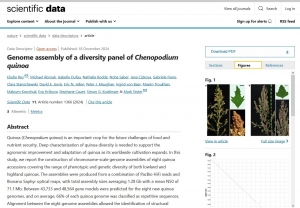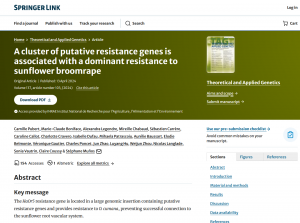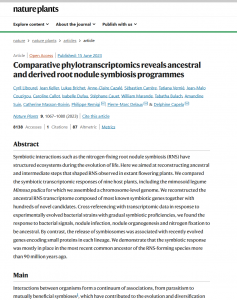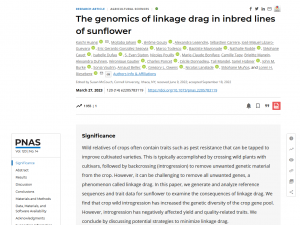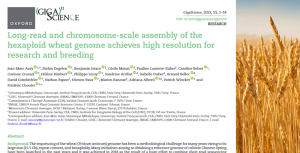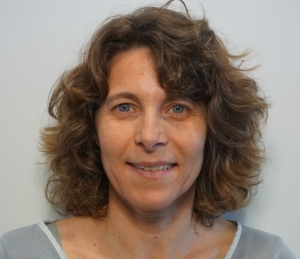
Date d'arrivée : 2017
Statut : Ingénieur de Recherche INRA
Rôles :
Dernier diplôme obtenu : Doctorat de Microbiologie et Biotechnologie de l'Institut National des Sciences Appliquées de Toulouse (INSAT)
Expériences professionnelles :
- Project coordinator : William Marande
- Project Partners
- Funding: FRAIB
- CNRGV's responsible : Isabelle Dufau
- CNRGV implactions: HWM-DNA extraction, Optical Map
gEXTRACT
Une erreur est survenue lors de la communication avec l'API PubMed.
Cliquez ici pour accéder à la publication sur le site de PubMed
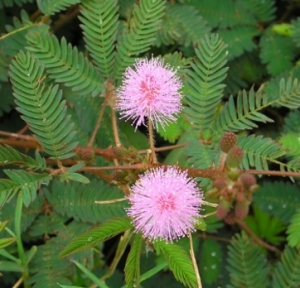
gEXTRACT
The perennial legume Mimosa pudica fits in that category as it is a recalcitrant plant producing high amounts of secondary metabolites and polysaccharides...
Voir plus
Since the Next Generation Sequencing revolution in 2005, whole genomes sequencing has become a routine activity for all types of species and for multiple research.
The main limitation to take full advantage of long read sequencing and scaffolding technologies is the need for High Molecular Weight (HMW) DNA as starting material.
While many protocols to obtain HMW DNA have been developed for mammals only few methods dedicated to plants exist and the quality of DNA obtained rarely meets the quality required for successful sequencing.
The perennial legume Mimosa pudica fits in that category as it is a recalcitrant plant producing high amounts of secondary metabolites and polysaccharides.
M. pudica is however of particular interest for several reasons : model for the study of mechanosensing systems in plants, formation of the nitrogen-fixing root nodule symbiosis (RNS), representative model of the legume subfamily Mimosoideae.
A gold-standard M. pudica genome assembly is required, but multiple protocols tested for DNA extraction finally resulted in short fragment only suitable for Illumina-based sequencing.
Failing to extract HMW gDNA for long-read sequencing is not specific to M. pudica, so the main goal of the gEXTRACT project will be to leverage the expertise of our three labs (CNRGV, LIPM, LRSV) to develop a universal protocol for plant HMW gDNA extraction.
This protocol will be an essential resource for any laboratories interested in plant genome sequencing.
The project is divided in three objectives:
1) Optimisation of a HMW gDNA extraction protocol suitable for long-read sequencing on M. pudica samples
2) Generation of a gold-standard genomic assembly for Mimosa pudica using PacBio (long-read sequencing) and Bionano (optical mapping).
3) Extension of the HMW gDNA extraction protocol to a diversity of plant species (ex: the liverworts Marchantia paleacea, the fern Pteris vittata, the non-RNS forming legume Chaetocalyx brasilense, the Zygnematophyceae Spirogloea muscicola) to demonstrate the universal efficiency of the gEXTRACT protocol.
24 Chemin de Borde Rouge
31320 Castanet tolosan
24 Chemin de Borde Rouge
31320 Castanet tolosan
Genome assembly of a diversity panel of Chenopodium quinoa
Une erreur est survenue lors de la communication avec l'API PubMed.
Cliquez ici pour accéder à la publication sur le site de PubMed
A cluster of putative resistance genes is associated with a dominant resistance to sunflower broomrape
Une erreur est survenue lors de la communication avec l'API PubMed.
Cliquez ici pour accéder à la publication sur le site de PubMed
Comparative phylotranscriptomics reveals ancestral and derived root nodule symbiosis programmes
Une erreur est survenue lors de la communication avec l'API PubMed.
Cliquez ici pour accéder à la publication sur le site de PubMed
The genomics of linkage drag in inbred lines of sunflower
Une erreur est survenue lors de la communication avec l'API PubMed.
Cliquez ici pour accéder à la publication sur le site de PubMed
Long-read and chromosome-scale assembly of the hexaploid wheat genome achieves high resolution for research and breeding
Une erreur est survenue lors de la communication avec l'API PubMed.
Cliquez ici pour accéder à la publication sur le site de PubMed
Une erreur est survenue lors de la communication avec l'API PubMed.
Cliquez ici pour accéder à la publication sur le site de PubMed
Une erreur est survenue lors de la communication avec l'API PubMed.
Cliquez ici pour accéder à la publication sur le site de PubMed
Une erreur est survenue lors de la communication avec l'API PubMed.
Cliquez ici pour accéder à la publication sur le site de PubMed
Une erreur est survenue lors de la communication avec l'API PubMed.
Cliquez ici pour accéder à la publication sur le site de PubMed
Une erreur est survenue lors de la communication avec l'API PubMed.
Cliquez ici pour accéder à la publication sur le site de PubMed
Une erreur est survenue lors de la communication avec l'API PubMed.
Cliquez ici pour accéder à la publication sur le site de PubMed
Une erreur est survenue lors de la communication avec l'API PubMed.
Cliquez ici pour accéder à la publication sur le site de PubMed

